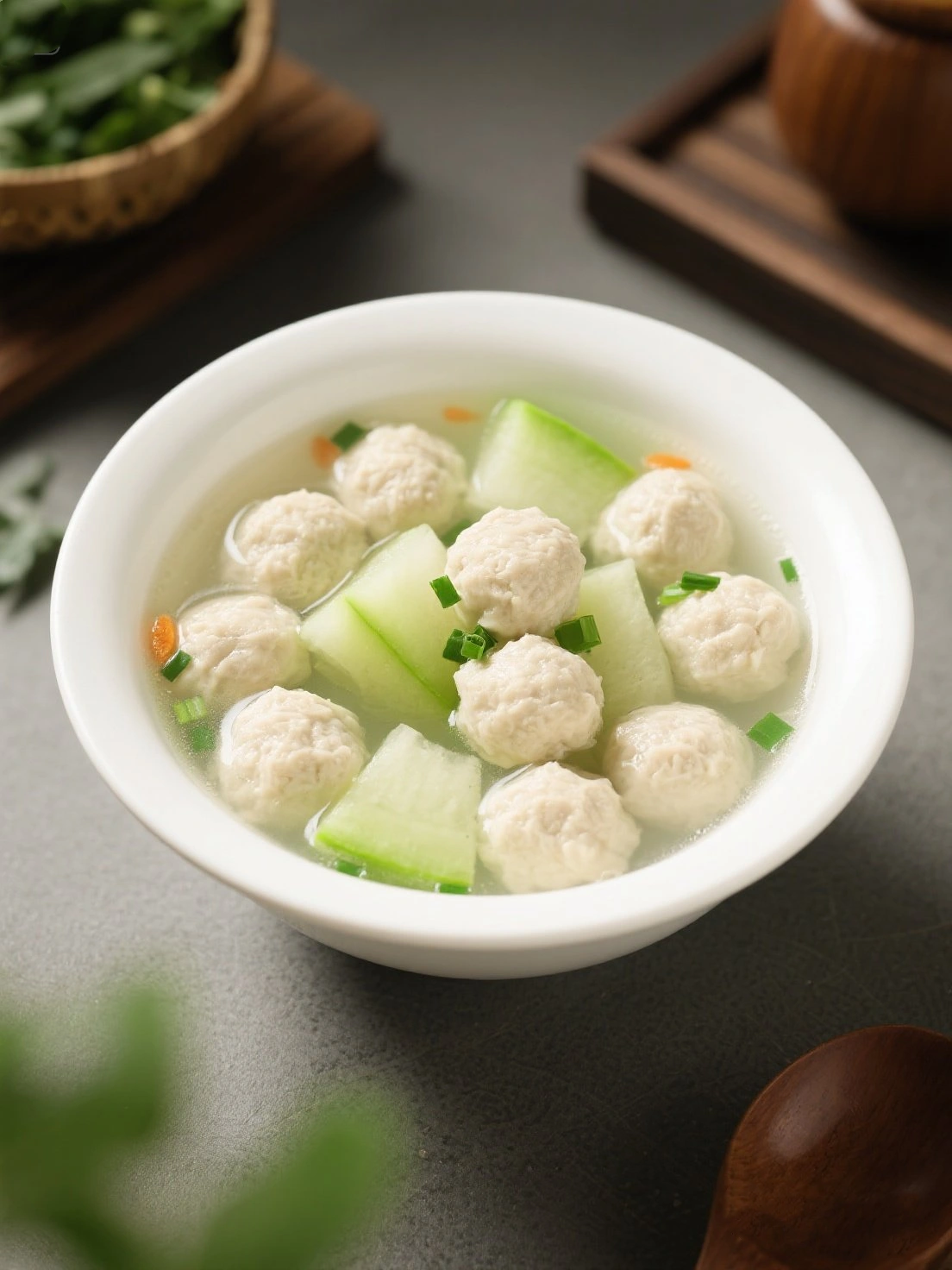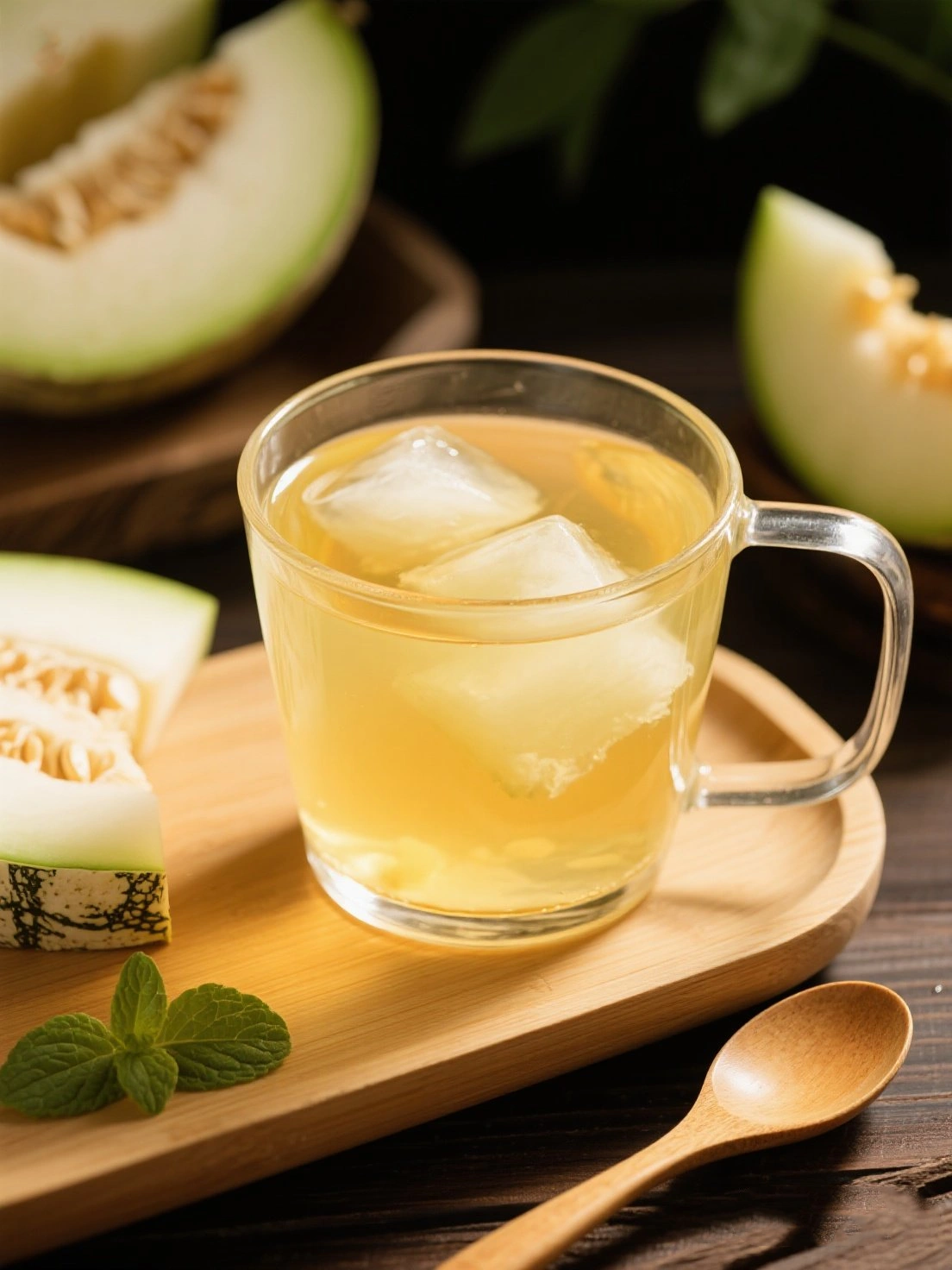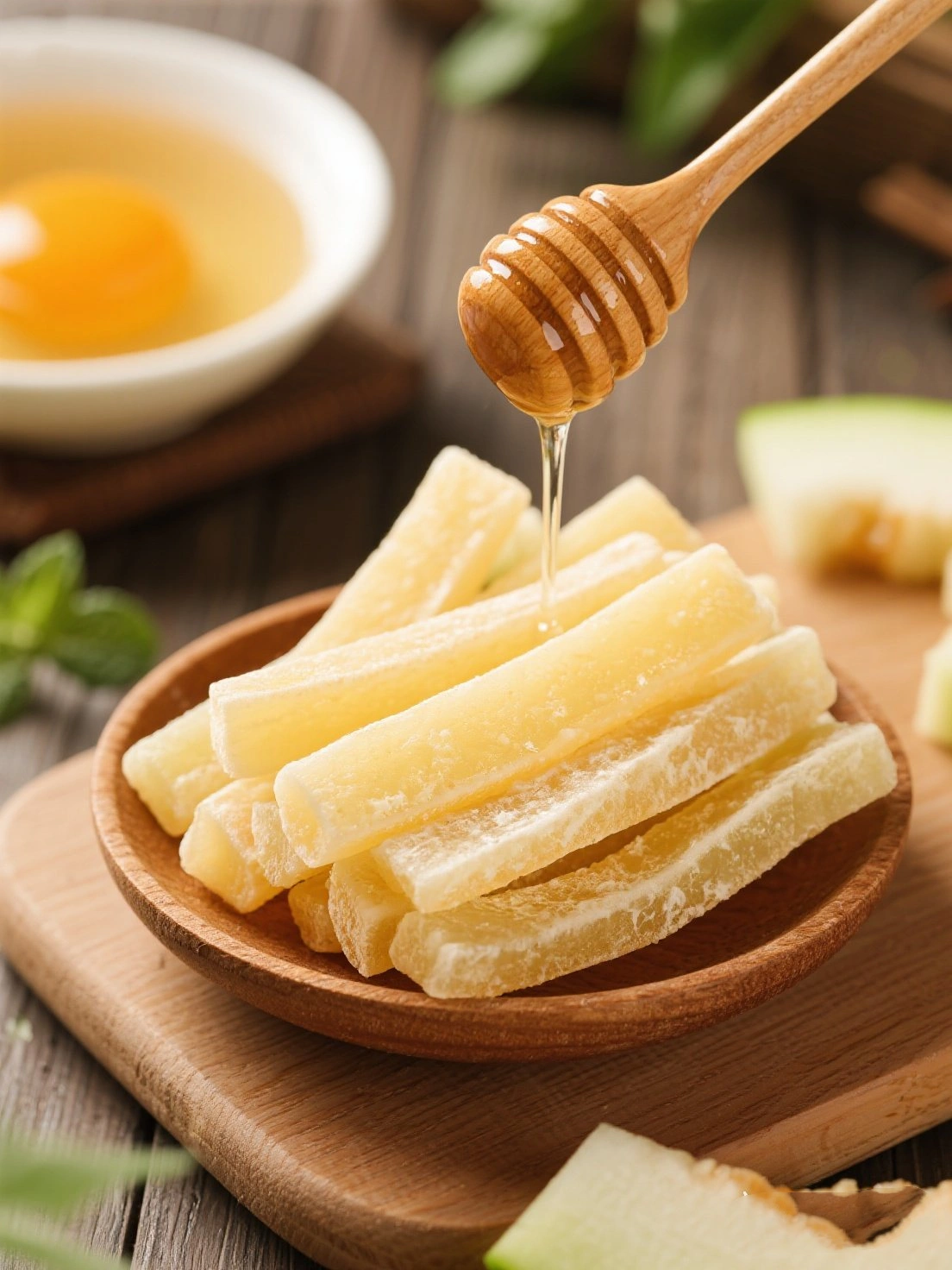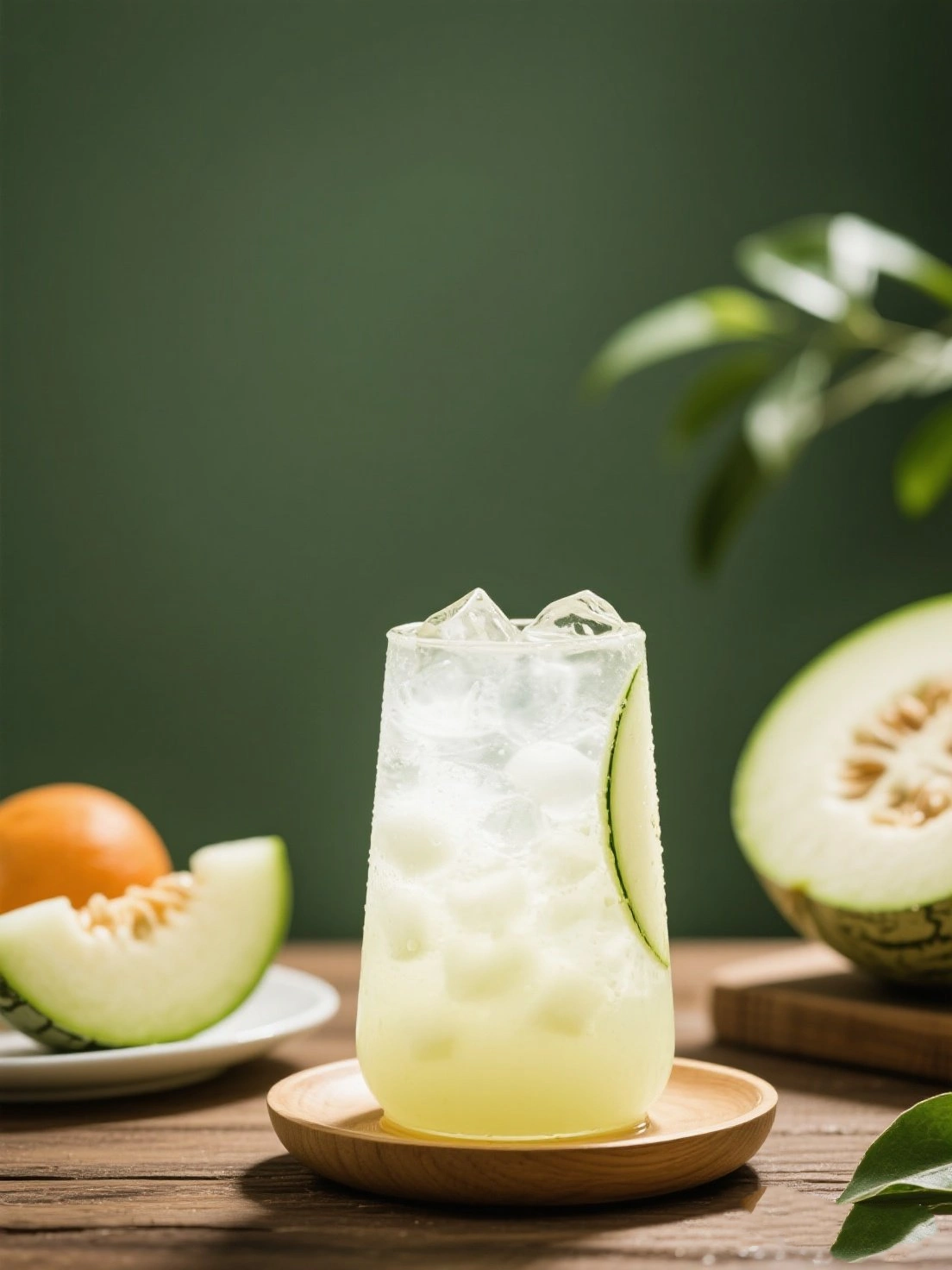Nutritional Value and Health Benefits of Winter Melon
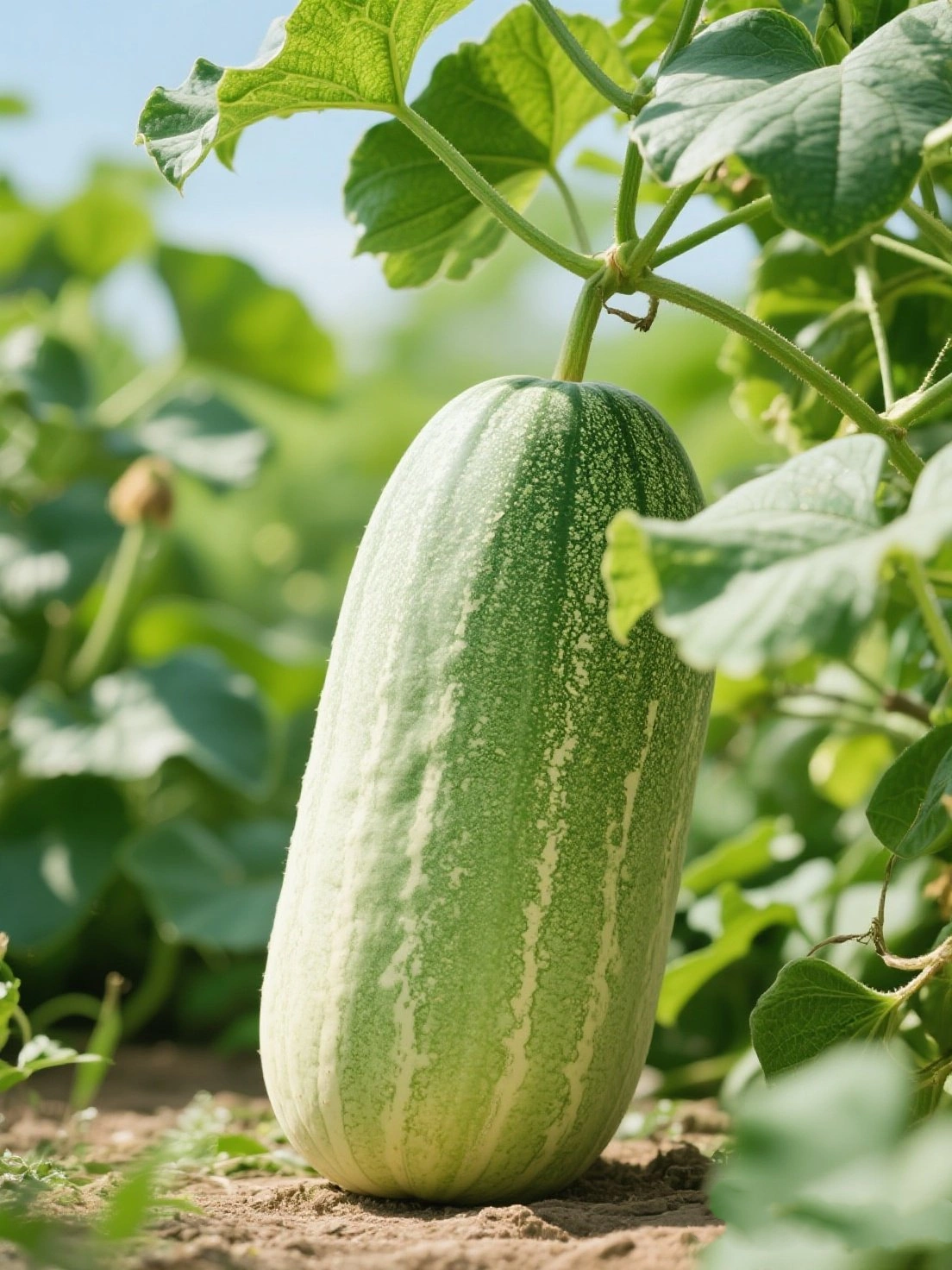
Nutritional Composition (per 100g)
- Calories: 13 kcal - very low calorie vegetable
- Protein: 0.4g - contains some plant protein
- Carbohydrates: 3g - mainly dietary fiber
- Fat: 0.2g - virtually fat-free
- Vitamin C: 13mg - about 14% of daily needs
- Minerals: Good source of potassium, calcium and magnesium
Health Benefits
- 🍈 High water content (96%) helps with hydration
- 🍈 Low calorie makes it great for weight management
- 🍈 Contains antioxidants that may help reduce inflammation
- 🍈 Traditional Chinese medicine uses it to "cool" the body
- 🍈 High fiber content supports digestive health
Tip: Winter melon is naturally low in sodium, making it excellent for those watching their salt intake.
Winter Melon Cultivation Process
1
Planting
- Plant seeds in warm soil after last frost
- Needs full sun and well-drained soil
- Space plants 3-5 feet apart
2
Growth
- Vines can grow up to 20 feet long
- Requires consistent watering
- Fruits develop in 60-85 days
3
Harvesting
- Harvest when skin turns waxy and hard
- Cut from vine with sharp knife
- Can weigh 10-50 pounds when mature
4
Storage
- Can be stored whole for months
- Once cut, wrap tightly and refrigerate
- Dries well for long-term preservation
5
Processing
- Peeled and seeds removed before cooking
- Often candied or made into preserves
- Used in both savory and sweet dishes
Summary: Planting → Growth → Harvesting → Storage → Processing.
Winter Melon Farming
See how winter melon is grown and harvested in traditional farms
Delicious Winter Melon Recipes
From refreshing soups to sweet desserts - explore various ways to enjoy winter melon!
Winter Melon Recipe Video Tutorials
Follow along with these videos to easily create delicious winter melon dishes and drinks.
